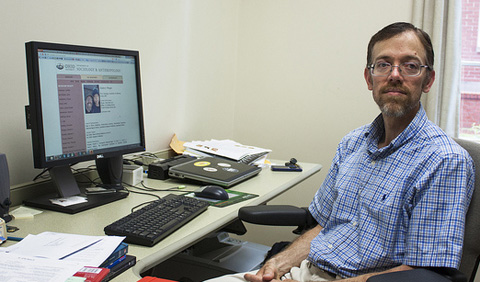Things often get ugly in the comments that follow political news, but research based on reader comments in Utah suggests that anti-immigrant sentiment is on the decline, says a Brigham Young University news release.
Dr. Charlie V. Morgan, Assistant Professor of Sociology and Anthropology, was a co-author on a paper on “Evidence of political moderation over time: Utah’s immigration debate online,” published Sept. 19 in New Media & Society.
“Is public debate on the Internet polarizing?” ask the co-authors in their abstract. “Some scholars warn that the Internet is an ‘anti-commons’ where political positions are extreme, while others view the Internet as a moderating influence on political polarization.
“We examine polarization trends in a regional, Utah-based news website, with a random sample of 1,768 comments over a two-year period. Focusing on the most contentious issue during this time—immigration—we find that extreme anti-immigrant sentiment decreases over time despite key political and religious events. We argue that emerging public spheres, like newspaper discussion forums, might reveal a general public inclination towards moderation during heated national and regional debate.”
“Interestingly, the proportion of moderate views emerged from anti-immigrant positions, suggesting public distaste for extreme anti-immigrant sentiment as the debate unfolded over time,” the authors wrote.
Salt Lake Tribune reporter Lindsay Whitehurst writes, “At the beginning of the study period, about half the comments expressed an extreme anti-immigrant view. By 2009, the extreme views had retreated to about 30 percent of the comments…. Researchers found the moderation effect also happened on a smaller scale as commenters on a single article thread became more moderate over time.” Read the article “BYU study: Do Internet comments grow nicer over time?”




















Comments